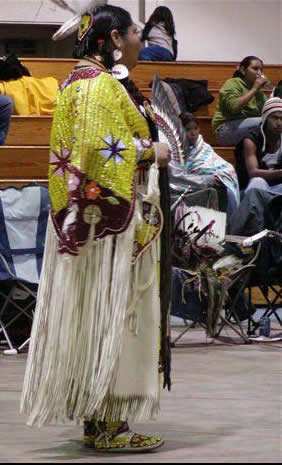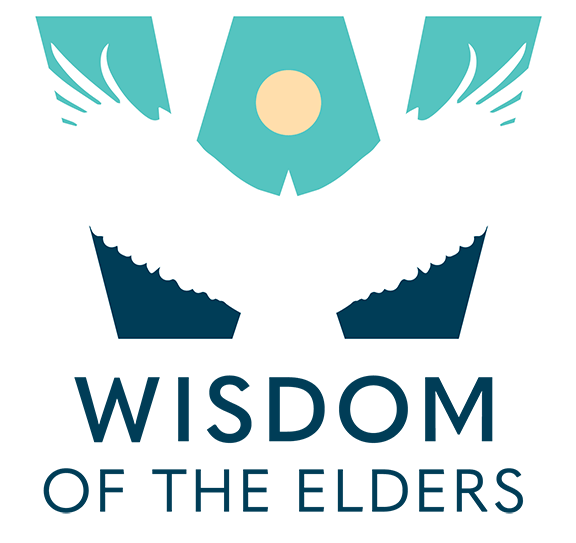Wish-Poosh Story
 My name is Katrina Miller Walsey. I’m a member of the Yakama Nation. My Indian name is yut-te-le-low-wit. With my job, I do a lot of storytelling. We have done stories; they’re from the Pushami storybook and we do some about the beavers, the big frog, and these stories are of the landmarks that are within the Yakama Reservation, or that we can see. They’re like, “Oh, that’s where it came from” and so we can see how the animals had made these landmarks.
My name is Katrina Miller Walsey. I’m a member of the Yakama Nation. My Indian name is yut-te-le-low-wit. With my job, I do a lot of storytelling. We have done stories; they’re from the Pushami storybook and we do some about the beavers, the big frog, and these stories are of the landmarks that are within the Yakama Reservation, or that we can see. They’re like, “Oh, that’s where it came from” and so we can see how the animals had made these landmarks.
Wish-Poosh Story: How the Yakama River and Union Gap came to be.
The first story I always like to do is called the Wish-poosh (L) Story. It’s about two big beavers. Long ago the animal people were here before us and so these two beavers, they didn’t like each other very much and they’re looking around for what they’re fighting about. I don’t know whether it be a girlfriend or a boyfriend. So these two beavers got in a fight and were started in Cle Elum. They were fighting and they were hitting each other and their tails were going everywhere. Pretty soon they made it all the way down to the Yakama Valley. And they made a river. And do you guys know what river that is? Yakama River! So that’s how the Yakama River came down from Cle Elum is because these two big beavers were fighting and they still weren’t done fighting. They came to the ridge. Since they were fighting so much they broke through that ridge and broke it through and it made a gap. Do you guys know what gap that might be? Union Gap! And so that’s the moral of this story of how the Yakama River came to be and Union Gap.
We do the skits. We dress the kids up in beavers and we actually go down and fight around. And it’s really good because even when we’re doing the skits to non-Indians the kids, and even us, the adults, we’ll hear, “Oh! You know, that’s how Union Gap came.” I always like to share these with the people of our community or even the non-members too and to show them how important everything is to the mountains, the lakes, the streams, the animals.
I always try to incorporate that the animal people were here first and they got the earth ready for us. We’ve got to be thankful for them, just like the elk. He was like, “I give up my life for them. They can eat me and use my hides for buckskin.” All the time I wear my regalia and I’ll show them it will clothe us. We’ve got to be thankful for the elk or for the salmon, and the roots and the berries because like they say, the roots are our big sisters and our big brothers and just everything we’re thankful for all the natural surroundings I’m thankful for.
The Big Frog: Creation of Charlie’s Pond
There’s also one called the Big Frog. He was a really big frog and he was sitting there along the stream enjoying the sun. Pretty soon it started to rain. And he’s like, “Oh no! I better jump in the stream before I get wet.” So he got ready to jump in the stream, but he jumped over the stream and he made a big hole. The rainwater filled this hole and that’s how we got Charlie’s Pond. There is Charlie’s Pond on the Yakama Reservation. So that’s always a fun one because the kids could relate to Charlie’s Pond down the road here.
Katrina Miller Walsey
Katrina Miller Walsey, Yut-te-le-low-wit, an enrolled member of the Yakama Nation, was raised in Wapato, Washington, and resides in the southeast part of the Yakama Reservation. Her parents are Stanley Miller and Thelma Shippentower. Her maternal grandparents are Lucy George and the late Clyde Shippentower. Her paternal grandparents are the late Tony and Hazel Miller. She is also a descendent of Chief Jobe Charley. The reservation covers 1.9 million acres in the Yakama Valley. The terrain consists of mountains, rivers, ranchland and cropland. The climate is arid.
As a storyteller and artist, she considers herself still in the learning process. She does beadwork, uses a sewing machine, and makes watas root bags. Her stories depend on the age of the group and the atmosphere. Her stories of the creation of the animal people are well received. A lesson can be learned from a story about her grandmother. While out camping and picking huckleberries, one little girl was getting lazy. She would only pick the big ones hoping to fill her basket quicker and thus be able to go play. She passes a bush and the little berries are all asking her to pick them. She tells them they are all too little and won’t fill her basket. After a while, she starts picking them and before she knows it, her basket is full. So the moral of this story is don’t just pick the big ones. Big ones and little ones will fill your basket just as fast. Huckleberries are our big sisters and it doesn’t matter how big or small they are, they still count.
Katrina is comfortable speaking to all age groups in all types of settings; kids to adults, schools, museums, and libraries. Her presentations also include some of the histories of tribal dances, music, cultural artifacts, and arts and crafts. As a young girl, she participated in the Swan dance, the Welcome dance, and the Farewell dance, which were performed at longhouse social gatherings. Her tribe is known for the wedding veil, beadwork, the shawl dress, and the wing dress.
Additional topics that Katrina shares arise from questions from the audience. She shares what she knows regarding pow wows, food, first ceremonies for younger men and women, health and healing from dancing, and cultural legends. She shares that her people always have to take care of their food and never take more than is needed. The Creator can take it away at any time. That is why food is so valuable. Plants, roots, and berries all have spirits of their own and we take care of them so they will take care of us.
Katrina has held several powwow titles and was selected Miss Yakama Nation 1989-1990. She represented Junior Miss Washington’s Birthday, was Miss Eagle Spirit, on the Miss Junior committee, head lady pow wow at the Indian Summer Celebration, and head lady dancer at Skopabsh pow wow. During the alcohol ban on the Yakama Reservation, the Yakima Herald and Seattle Times interviewed her for two stories. She supported the alcohol ban because she is a survivor of an alcohol-related fatal accident and it changed her life.
Katrina Miller Walsey
2571 Satus Longhouse Road
Granger, WA 98932
509-865-5121
tradishdancer@yahoo.com
